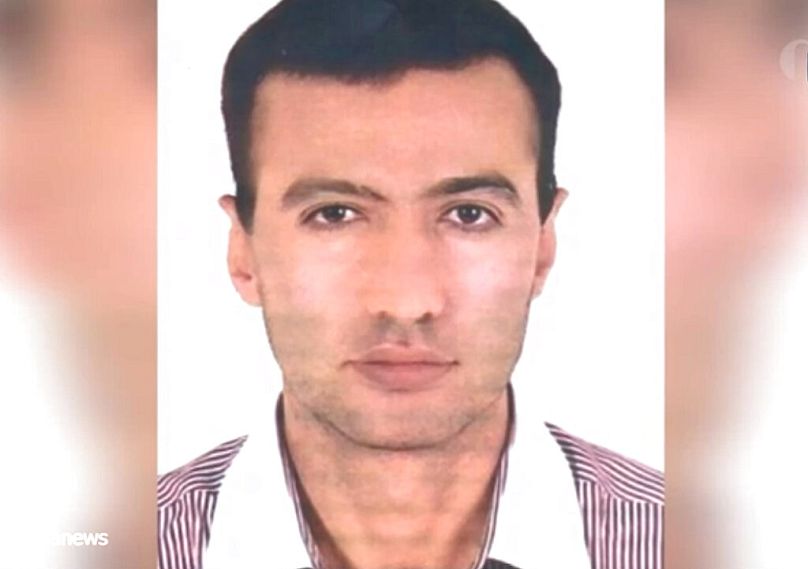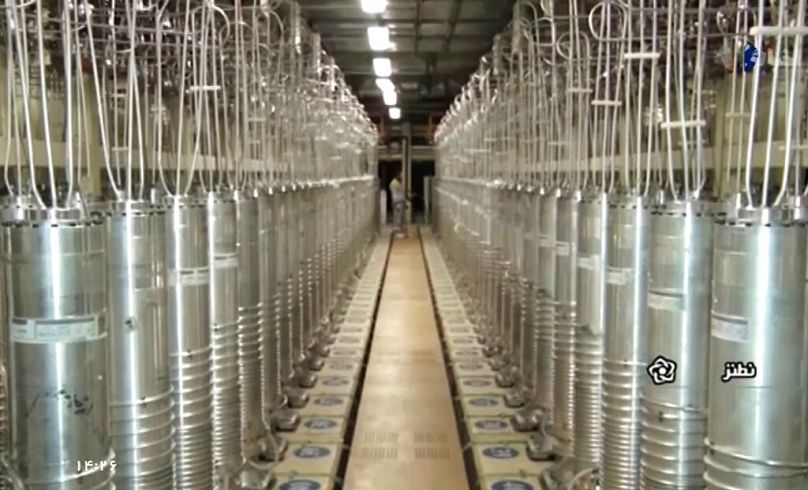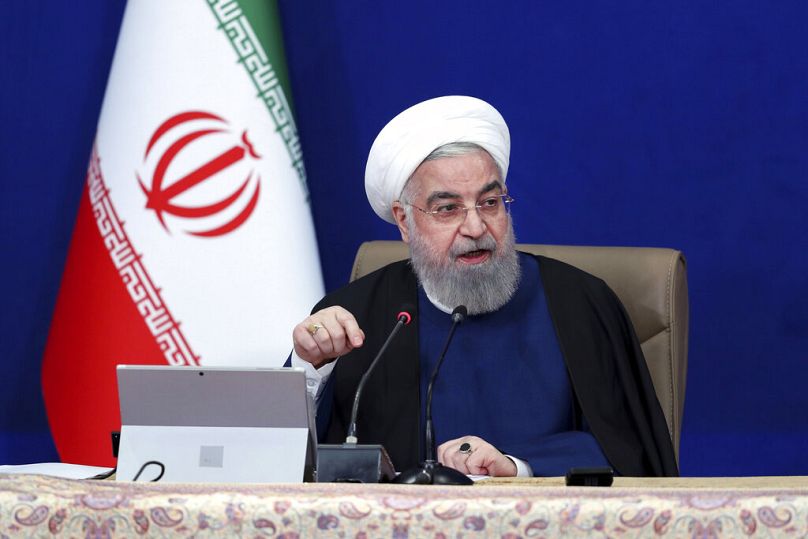A state TV broadcast has claimed the suspect is Iranian-born and fled the country hours before the explosion at Natanz
Iran has named a suspect in the attack on its nuclear enrichment facility in Natanz, saying he fled the country hours before the incident.
The alleged sabotage last Sunday involved a power outage at the underground site, which houses thousands of centrifuges, apparently caused by an explosion.
The extent of the damage remains unclear but it provoked a furious reaction in Tehran in the midst of talks with world powers in Vienna about the possibility of the US re-entering the nuclear deal.
Last week President Hassan Rouhani declared that Iran would ramp up nuclear enrichment up to 60 per cent purity - three times higher than ever before - in response to the incident, for which the country has so far blamed Israel.
Iranian state TV report offers new details on Natanz explosion
A report on state television in Iran has named the prime suspect as 43-year-old Reza Karimi, saying he was born in the nearby city of Kashan, Iran.
Aside from a passport-style photograph of a man said to be Karimi, the report also displayed what appeared to be an Interpol “red notice” seeking his arrest.
As yet no such notice has appeared on Interpol's own public-facing database and Interpol, based in Lyon, France, has not yet responded to AP's request for comment.
The TV report also said “necessary actions” were underway to bring Karimi back to Iran through legal channels, without elaborating. The supposed Interpol “red notice” listed his foreign travel history as including Ethiopia, Kenya, the Netherlands, Qatar, Romania, Turkey, Uganda and the United Arab Emirates.
The report also did not elaborate how Karimi would have gained access to one of the most secure facilities in the Islamic Republic, which was also badly-damaged by an explosion last July. The Iranian Atomic Energy Organisation had announced the completion of repairs to the site just two days before the latest incident.
The state TV report also offered some further detail on the nature of the incident last weekend, which had been variously attributed by Iranian officials to a generator breakdown, a controlled explosion and a cyberattack.
There was a “limited explosion of a small part of the electricity-feeding path to the centrifuges’ hall,” the report said. "The explosion happened because of the function of explosive materials and there was no cyberattack.” It added that there were "images" to corroborate this account by the Iranian security services, although it did not show these pictures.
The report also showed centrifuges in a hall, as well as what appeared to be caution tape up at the Natanz facility. In one shot, a TV reporter interviewed an unnamed technician on the site.
“The sound you are hearing is the sound of operating machines that are fortunately undamaged," he said. "Many of the centrifuge chains that faced defects are now under control. Part of the work that had been disrupted will be back on track with the round-the-clock efforts of my colleagues.”
Talks over possible US return to JCPOA continue in Vienna
Negotiations over the future of the Joint Comprehensive Plan of Action continued in Vienna on Saturday. The 2015 accord, which former President Donald Trump unilaterally withdrew the U.S. from in 2018, was meant to prevent Iran from stockpiling enough high-enriched uranium to be able to pursue a nuclear weapon in exchange for the lifting of economic sanctions.
The Islamic Republic continues to insist its nuclear program is peaceful, despite long-held convictions to the contrary in the West. Officials have previously suggested that uranium enriched up to 60 per cent could be used for nuclear-powered ships, though Iran currently has no such ships in its navy.














